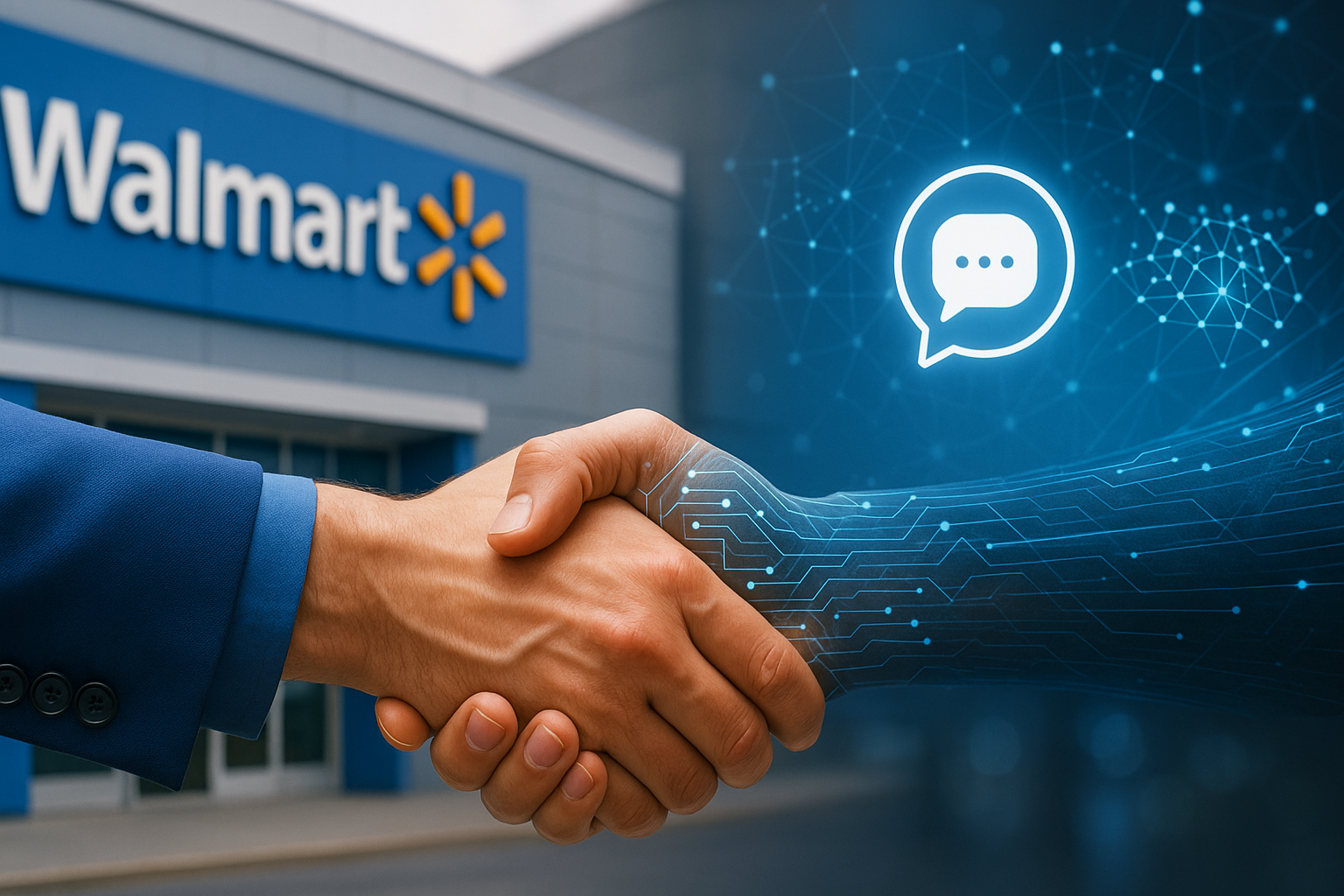Walmart and OpenAI: The Dawn of Conversational Commerce
Written by Arbitrage • 2025-10-23 00:00:00

In a bold move that could redefine the way we shop, Walmart has announced a partnership with OpenAI to integrate its retail ecosystem directly into ChatGPT. This collaboration allows customers to browse and purchase Walmart products simply by conversing with the AI, a major step toward what the company calls "agentic commerce." Rather than scrolling through pages of search results or navigating apps, shoppers can now say something like, "I need ingredients for a pasta dinner tonight," and ChatGPT will handle everything from recommendations to checkout.
Convenience is at the core of this partnership. Through a feature known as Instant Checkout, users can order Walmart products directly within ChatGPT, completing the entire purchase process without ever leaving the chat. Payments are processed through Stripe and compatible with Apple Pay and Google Pay, making the experience nearly seamless. While the launch is currently limited to single-item purchases, Walmart plans to expand to multi-item carts and more complex shopping scenarios in the near future. For now, the system focuses on packaged goods, apparel, and household items, with plans to add groceries and fresh products later.
This initiative represents far more than a new shopping tool; it is a strategic play by Walmart to stay ahead in an industry increasingly shaped by artificial intelligence. By partnering with OpenAI, Walmart gains access to one of the world's most advanced conversational systems, while OpenAI secures a foothold in e-commerce, a sector worth trillions. Together, they aim to reshape how consumers interact with brands, turning the act of shopping into a conversation rather than a transaction.
Walmart is also bringing this transformation in-house. Through its Walmart Academy, the company will launch an OpenAI certification program for employees in 2026, part of a one-billion-dollar investment in workforce training. The goal is to ensure that workers understand and can leverage AI tools effectively, whether in customer service, logistics, or product management. This approach highlights Walmart's belief that AI will not replace its workforce but rather augment it, helping employees make faster, smarter decisions in an increasingly digital retail landscape.
The implications of this partnership are profound. It signals the rise of conversational shopping, where the traditional search bar is replaced by natural language interaction. This shift could dramatically reduce friction in the buying process, increase personalization, and raise conversion rates. Instead of manually comparing options, shoppers will receive curated suggestions based on preferences, past orders, and even contextual details like time of day or dietary habits. In essence, the shopping experience becomes proactive, as the AI can anticipate what customers need before they even ask.
This partnership also positions Walmart as a formidable challenger to Amazon and Google, both of which have long explored voice and AI-based shopping experiences. By embedding commerce directly into ChatGPT, a platform with hundreds of millions of users, Walmart gains access to a vast, pre-existing audience. This could alter the competitive dynamics of online retail, moving discovery and checkout away from traditional search engines and marketplaces toward a more conversational, AI-driven interface.
The future will not be without challenges. Data privacy and algorithmic transparency will be critical, as conversational systems handle vast amounts of personal information. There is also the question of reliability, ensuring that AI recommendations remain accurate, unbiased, and contextually appropriate. And while automation offers efficiency, Walmart will need to balance innovation with human oversight to maintain trust and quality service.
Still, the potential upside is enormous. If successful, this partnership could redefine consumer expectations around convenience, personalization, and speed. It points to a future where retail is not just digital but conversational, adaptive, and deeply integrated into our daily routines. Shopping may soon feel less like an errand and more like having a helpful assistant who knows your tastes, your needs, and your schedule.
With this alliance, Walmart and OpenAI are not just experimenting with new technology. They are rewriting the language of retail.